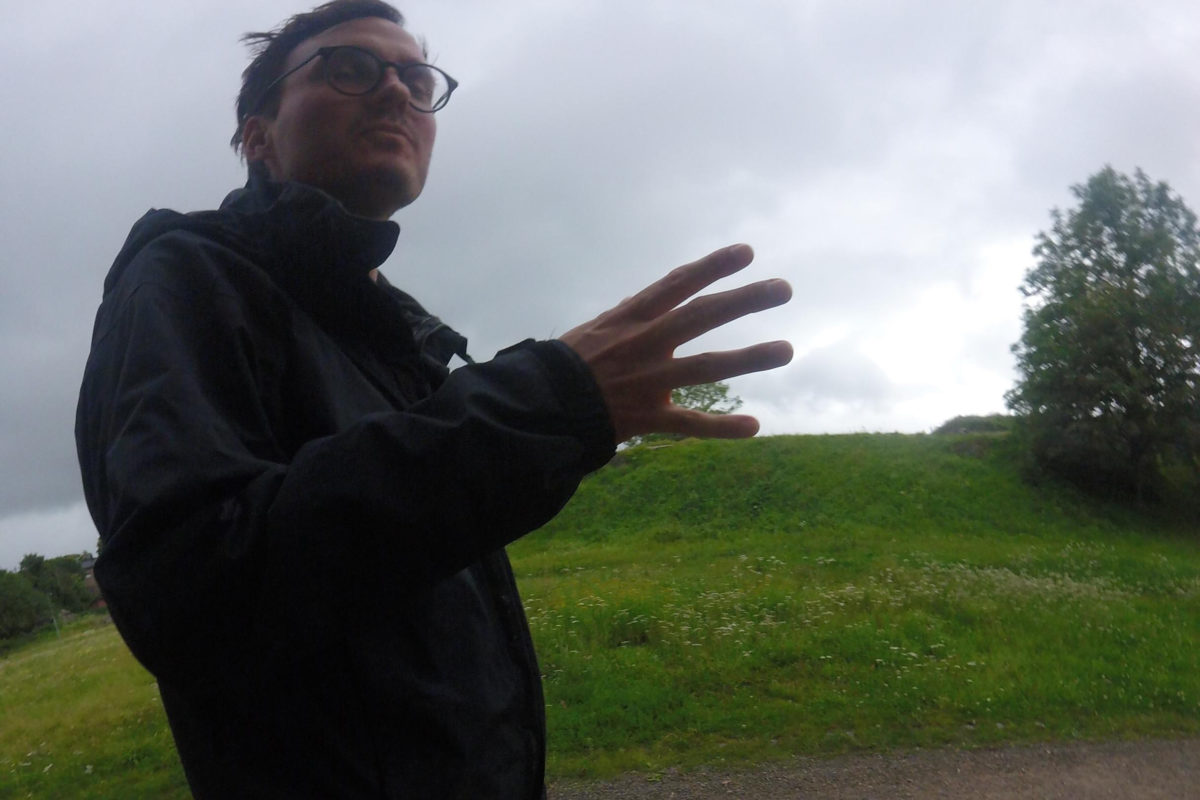Alexander Fleischmann
Alexander Fleischmann works as a researcher at the Institute for Gender and Diversity in Organizations, WU Vienna University of Economics and Business, on his PhD on alternative forms of organizing and anti-discrimination. His previous appointment was at the Academy of Fine Arts Vienna where he was responsible for the Office for Equal Opportunities and Gender Studies. He graduated in both Business Studies (2005) and Gender Studies with a minor in Art History (2015) at the University of Vienna. His last works include a thesis on Jacques Lacan’s concept of the subject in relation to the work of Félix González-Torres as well as the book „Kunst Theorie Aktivismus“ edited together with Doris Guth on the connections between artistic, theoretical and activist anti-discriminatory practices.
Project at HIAP:
Questions of establishing emancipatory work spaces, around participatory, open, artivistic fieldwork and their (queer) connections to inequalities should be posed in the project ‘The market calls for emancipatory responses’. Conceptualized as a collaborative exchange within the ‘Call and Response’ programme (coordinated by HIAP Helsinki and das weisse haus Vienna), Alexander Fleischmann and Andrew Gryf Paterson address this invitation to possible collaborators in Helsinki.
The format we propose for collaboration are strolls around the island of Suomenlinna every Tuesday afternoon, with readings and discussions on site, followed by preparing dinner and eating together.
Taking, among others, the conversation between Myles Horton and Paulo Freire, titled ‘We Make the Road by Walking’ or David Bohm’s ‘On Dialogue’ as starting points, we would like to engage in and reflect on participation, dialogical experiences and reminding ourselves how difficult it is to come truly open to a conversation without a pre-set range of opinions.
It is not obvious where to apply one’s direction and focused energy and desire, except towards the cause of making a better life and living conditions with others, both human and non-human. As Sharing is Caring and even if there is too much loaded up on the table, social media wall, suitcase or harddisk in advance unread, these points of departure might allow for conversation, filtering and getting curious.
To address questions of better lives, to question economic relations, we could refer to Nikita Dhawan, Antke Engel, Christoph F. E. Holzhey and Volker Woltersdorff’s ‘Global Justice and Desire: Queering Economy’ and their proposal to see how specific economic arrangements, like private ownership and/or capitalism, shape specific forms of desire and, vice versa, how specific concepts of desire as lack shape our thinking of possible economic arrangements. Recognising the nature of economies, and the surpluses that are afforded to societies might help to reconnect with possibilities beyond the hype of the latest new, focusing on what can be inherited, socially-intangibly and naturally-materially.

